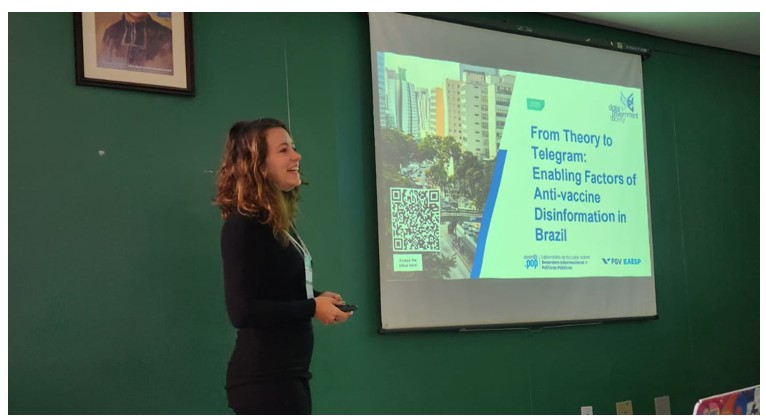
Reflections from Julie Ricard (2025 dg.o Travel Grant Awardee, Ph.D. Student at Fundação Getulio Vargas / São Paulo)
The DG.O conference in Porto Alegre was my first time at DGO, which came with high expectations. From the Welcome Reception at the Museum, I was excited to see such a multidisciplinary and diverse group of researchers from all over the world. I had the opportunity to attend diverse sessions, focusing on topics ranging from digital literacy (especially when it comes to understanding government data) to unpacking strategies for rolling out e-government services without fostering inequalities. In several sessions, this thread kept coming up: how to make sure these advances don’t deepen inequalities, but instead help reduce them.
I presented my work in a track focused on social media and government, where we looked at the intersection of digital platforms, public debate and policy. My research on anti-vaccine communities in Brazil added to this conversation by showing how certain sociopolitical and informational conditions create fertile ground for disinformation to spread. It was very interesting to see how this connected with other studies, including the one that won Best Research Paper, on citizen-based monitoring in South Africa, each looking at different contexts but wrestling with similar questions about trust, participation, and impact.
The keynotes tied it all together. The idea of “government as a platform” felt particularly relevant, with Brazil’s gov.br as a living example of how this plays out. And Professor Diniz’s talk on “Data, Territories and Public Policies” was a great way to ground the debate. In particular, his example of “social currencies” programs in Brazil showed how data and territorial specificities intersect in very tangible, human ways.
What struck me most about DGO was its balance: rigorous, advanced research that never lost sight of its policy relevance. You walk out of a session thinking not just “that was interesting,” but “this could change something in practice.” That’s the kind of academic space we need more of.
Julie Ricard